 Petzlover
Petzlover Lapponian Herder is originated from Finland but Sarplaninac is originated from Macedonia. Lapponian Herder may grow 11 cm / 4 inches shorter than Sarplaninac. Lapponian Herder may weigh 10 kg / 22 pounds lesser than Sarplaninac. Both Lapponian Herder and Sarplaninac has same life span. Both Lapponian Herder and Sarplaninac has same litter size. Both Lapponian Herder and Sarplaninac requires Moderate Maintenance.
Lapponian Herder is originated from Finland but Sarplaninac is originated from Macedonia. Lapponian Herder may grow 11 cm / 4 inches shorter than Sarplaninac. Lapponian Herder may weigh 10 kg / 22 pounds lesser than Sarplaninac. Both Lapponian Herder and Sarplaninac has same life span. Both Lapponian Herder and Sarplaninac has same litter size. Both Lapponian Herder and Sarplaninac requires Moderate Maintenance.
 The Lapponian Herder hails from Finland. He is a dog which was developed for the Sami people who needed a strong dog to herd and guard their reindeer. The Sami people knew that they could reply on these Spitz-type dogs to efficiently manage their reindeer herds.
The Lapponian Herder hails from Finland. He is a dog which was developed for the Sami people who needed a strong dog to herd and guard their reindeer. The Sami people knew that they could reply on these Spitz-type dogs to efficiently manage their reindeer herds.
As with many other dog breeds, their numbers dwindled during and after the Second World War, and breeders then stepped forward to restore the herding dog populations. The dog was developed from Spitz-type herding breeds which were crossed with black and white Karelian Bear Dogs as well as other dog varieties.
Both the Lapponian Herder and the Finnish Lapphund were recognized as the same breed, with the Lapponian being separated into its own breed in 1966.
The dog is one of Finland’s five national dog breeds and in 2017, the Lapponian Herder was accepted to the Foundation Stock Service program.
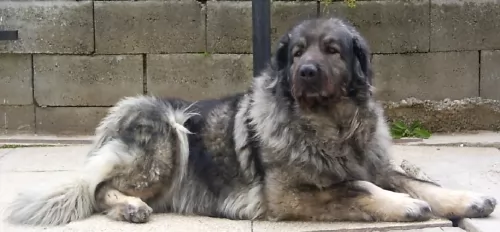 Hailing from Macedonia, the beautiful Sarplaninac dog was developed as a guardian of livestock and is large enough to fight off large predators like bears and wolves.
Hailing from Macedonia, the beautiful Sarplaninac dog was developed as a guardian of livestock and is large enough to fight off large predators like bears and wolves.
Nobody is too sure of the breeds exact origins, though it is thought that its ancestors came to the Balkan Peninsula with people migrating from ancient Asia.
This huge dog is one of the oldest native breeds from ancient Molosser breeds. The dog was recognized in 1939, and in 1954 it became known as the Yugoslav Shepherd Dog. Later the name changed and the dog was recognized by the United Kennel Club in 1995.
 This is a medium sized dog and both male and female dogs stand between 43 and 51cm in height and weigh in the region of 30 to 35kg.
This is a medium sized dog and both male and female dogs stand between 43 and 51cm in height and weigh in the region of 30 to 35kg.
They have a medium length double coat which is straight and fairly harsh to the touch. They are moderate shedders.
Looking much like a combination German Shepherd and Wolf, the Lapponian Herder’s coat can be dark grey, cream, dark brown and black. He has erect ears, brown eyes and a long bushy tail which can be held low but which he raises somewhat over the back when he is alert. The head is wedge-shaped with tapering muzzle and black nose.
Energetic and lively while also being calm, the Lapponian Herder makes an excellent family pet.
As a very active breed, he is going to need an active, outdoor-type of owner. He is an intelligent, independent dog who wants to be kept busy. Because of his smartness he is easy to train ad socialize, being a dog that wants to please.
Training and socialization will do wonders for him, particularly because he is a vocal dog, loving to bark and air his views. With the training you can call out to him ‘be quiet’ and he will, as he becomes an obedient dog who is a pleasure to have around in all kinds of situations.
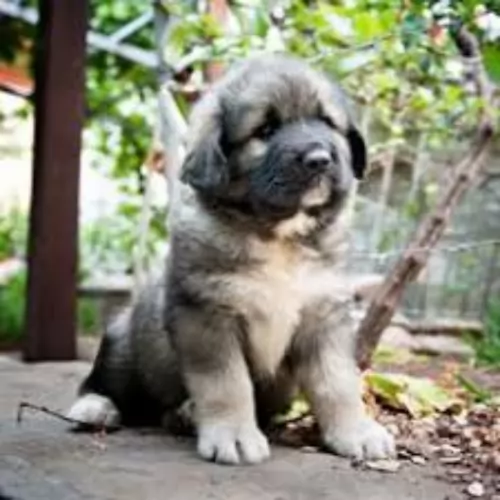 The Sarplaninac is a large, strong, fluffy dog standing at between 54 and 62cm in height and weighing between 30 and 45kg.
The Sarplaninac is a large, strong, fluffy dog standing at between 54 and 62cm in height and weighing between 30 and 45kg.
The coat of the dog is dense, coarse and of medium length. Colors are different shades of grey, white, tan and black. The head is large, the ears are fairly short but are floppy and covered with short hair. The dog is deep chested and the tail is long, often held high and covered with thick, feathery hair.
Protective, reliable, reserved, stubborn and gentle, this intelligent dog is fairly serious, and while he makes a devoted family pet, he is cool and wary of strangers.
Excellent training and socialization makes him well mannered, balanced and obedient around different people. He will tolerate children but won’t take easily to other pets in the house, capable of becoming aggressive with them.
 The Lapponian Herder is a great family pet who is social and who loves being in the company of his human family, being able to get on well with children in the home too, as well as pets.
The Lapponian Herder is a great family pet who is social and who loves being in the company of his human family, being able to get on well with children in the home too, as well as pets.
He plays a protective role too, not being quiet when it comes to barking and warning his family of intruders.
They’re very energetic dogs but can be docile indoors. He is smart too, being able to learn quickly. Bring one of these Lapponian Herders into your home, and you’re guaranteed a splendid family pet.
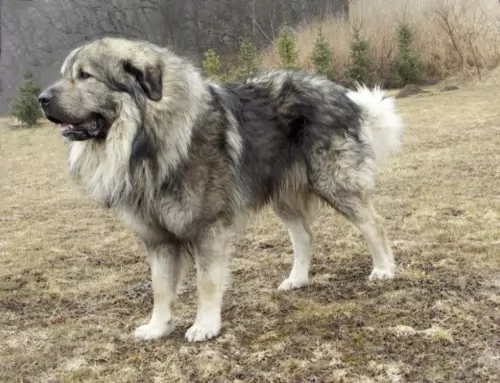 These dogs are protective, but they’re not vicious. When properly raised they are wonderful family pets.
These dogs are protective, but they’re not vicious. When properly raised they are wonderful family pets.
True, it’s a large, strong willed dog that isn’t a good choice for the first-time dog owner. They are good with children, but only children who have been taught how to treat animals with care and patience.
This dog is a powerful guardian type of dog, imposing in size, but it’s all about upbringing, and if you bring him up well then he can make a tremendous pet and companion.
 The Lapponian Herder, with good care, should be able to live for 10 to 14 years.
The Lapponian Herder, with good care, should be able to live for 10 to 14 years.
He is generally believed to be a healthy dog breed, but as with most other dogs, there are a few health issues which can crop up. These can be eye- and infections as well as skin allergies. These can be highly irritating for your dog and painful too, and veterinary intervention may be required.
Other serious dog problems can be bloat and joint dysplasia.
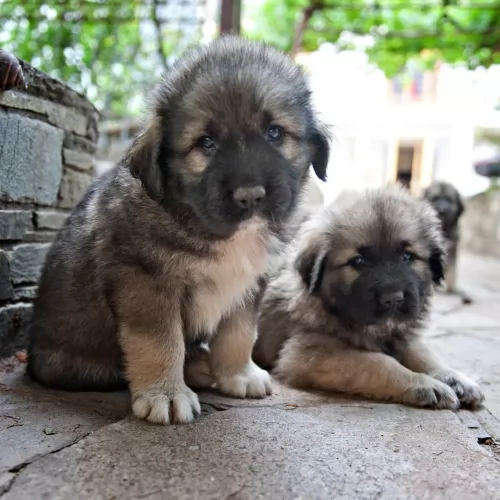 The Sarplaninac dog is a robust dog but he can suffer from health issues such as hip dysplasia, obesity, bloat, ear infections and skin allergies.
The Sarplaninac dog is a robust dog but he can suffer from health issues such as hip dysplasia, obesity, bloat, ear infections and skin allergies.
When your dog gazes up at you with such love in his eyes, don’t be tempted to pop some chocolate into his mouth or let him finish off your ice-cream. Treats like this can damage your pet’s health and give him heat intolerance, breathing difficulties, hypertension, liver disease and diabetes.
 The Lapponian Herder has a dense coat and he is considered to be an average shedder with some seasonal shedding.
The Lapponian Herder has a dense coat and he is considered to be an average shedder with some seasonal shedding.
To keep the coat sleek and shiny, get into the habit of brushing him twice a week. With the assistance of the right grooming tools you will be able to clip his nails if he doesn’t wear them down naturally. Just be careful though, because cutting to far down can mean cutting him where the nerves are and this can cause your pet great pain.
When you brush him, check his ears at the same time and use a damp cloth to wipe away the excess wax and dirt.
His teeth should also be cleaned with canine toothpaste and toothbrush. If you are apprehensive about keeping up with these grooming procedures, there are professional dog grooming experts who will attend to your dog’s grooming needs.
The Lapponian Herder is a medium sized dog full of energy.
If you feed him commercially manufactured kibble, you’ll read on the packaging about the type of food it is and what portion sizes to give him. Always go for the top quality brands that are made with good meaty ingredients and not filled with the likes of colorants and preservatives.
It is healthier to give him 2 smaller meals a day as opposed to one large meal. Try and give him some home-cooked food to bring in some variety. Excellent food for him would be some cooked chicken, brown rice, pasta and some cooked or raw vegetables added into his kibble. Every now and then it can be good for him to have a bit of raw meat added into his food.
Your Lapponian Herder must have constant access to cool, fresh water. Remember to wash the bowl out regularly, as the dog’s saliva enters the water when drinking.
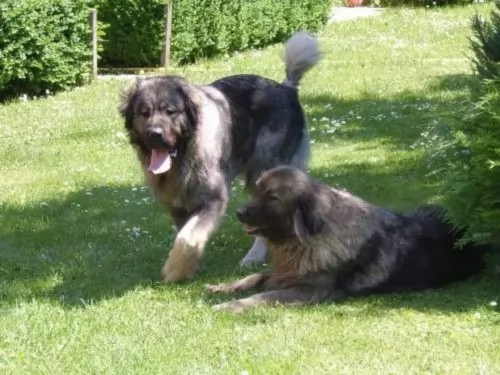 Every dog needs care from puppyhood through to old age.
Every dog needs care from puppyhood through to old age.
Šarplaninacs are looked upon as medium maintenance dogs. The coat is long and thick and requires a firm bristle brush to get their hair brushed.These dogs are moderate shedders so a brush twice a week will do the trick to keep the hair free of loose hair and matting.
Because these dogs have floppy ears, they will need to be checked and cleaned. Floppy eared dogs battle with moisture and wax build-up that increases the likelihood of ear infections.
Check the eyes that they are clear and free of discharge. Eyes with a lot of discharge can be indicative of health problems.
Check for any unusual lumps as cancer often starts with a new lump.
Provide your pet with a nice warm, dry place to sleep.
Keep his vaccines up to date to prevent deadly canine diseases.
Have him or her spayed or neutered if you don’t want puppies. These are regular procedures for a vet and offers health benefits for the dog. Neutering a male improves his character and keeps him from roaming. These dogs are capable of having 3 – 8 puppies.
The Sarplaninac requires decent food if he is to remain healthy. Dog’s stomachs can become upset if they eat all kinds of sweet and spicy human foods.
Commercially manufactured dog food is a good backup food to have because of its convenience. Try to include some home-made food. Simply add into one big pot chicken, brown rice or pasta and spinach, sweet potatoes and carrots. This food can all be chopped up and added in to the dry kibble twice a week. Give this to your pet twice a week and see how his tails wags when he smells it.
Also try to add in some raw meat to his food occasionally.
Ensure there is always a bowl of fresh, cool water within his reach.